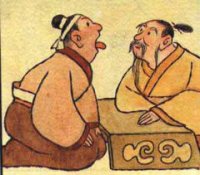Visiting an acupuncturist can be like going to a new country for the first time. Its an experience somewhat different from what you are used to during a visit to your other healthcare providers. Your acupuncturist may ask you a wideranging and seemingly unrelated set of questions. They will probably take your pulse with three of their fingers on each of your wrists. They may palpate your abdomen and various other points and pathways on your body surface. And they will probably ask to look at both the surface and underside of your tongue. Once all this information is gathered, they will try to make sense of all your signs and symptoms so the treatment can be tailored to your very specific situation. For many patients, it can be refreshing to have their myriad symptoms assembled into a pattern that makes sense to someone.
Most people about to receive acupuncture for the first time have two main concerns; (a) Does it hurt? and (b) Are the Needles Reused?
Acupuncture is rarely uncomfortable. In fact, quite the opposite. It is usually very relaxing. Acupuncture needles are extremely thin. Some people are apprehensive during the first treatment because of the unfamiliarity and their previous experiences with much thicker hypodermic needles. But after 1 or 2 treatments, most people come to appreciate the profound sense of calm, balance and relaxation they feel.
As for needle reuse, most acupuncturists today use single-use, factory sterilised, disposable needles.
About 15% of acupuncture patients experience a temporary exacerbation of their condition or minor flare-ups of old conditions following their first few treatments. This is well documented and not a concern. In fact, these ‘healing reactions’ are a normal part of getting better. They are typically short-lived and are usually followed by significant improvement.
The incidence of truly adverse reactions to acupuncture when it is provided by properly trained professionals has been repeatedly documented to be extremely miniscule; many orders of magnitude less frequent than any adverse effects you are likely to experience from pharmaceuticals for example. The American National Institutes of Health (NIH) concluded in 1997 that “one of the advantages of acupuncture is that the incidence of adverse effects is substantially lower than that of many drugs or other accepted medical procedures used for the same conditions”. http://consensus.nih.gov/cons/107/107_statement.htm
Furthermore, the ‘side effects’ of acupuncture are usually things ‘you want’ rather than things you ‘don’t want’. This is precisely because the whole person is the focus of treatment, not just the specific symptom. For example, a woman may come to an acupuncture clinic primarily for the treatment of chronic sinus pain. The practitioner provides a treatment that attends not only to the sinus pain as a symptom but also to the patient’s central imbalances and disharmonies discovered during assessment. After several treatments, the patient notes that not only has sinus pain improved, but sleep is better and the peri-menopausal hot flashes she had been experiencing have mostly disappeared. This is not an unusual scenario.

